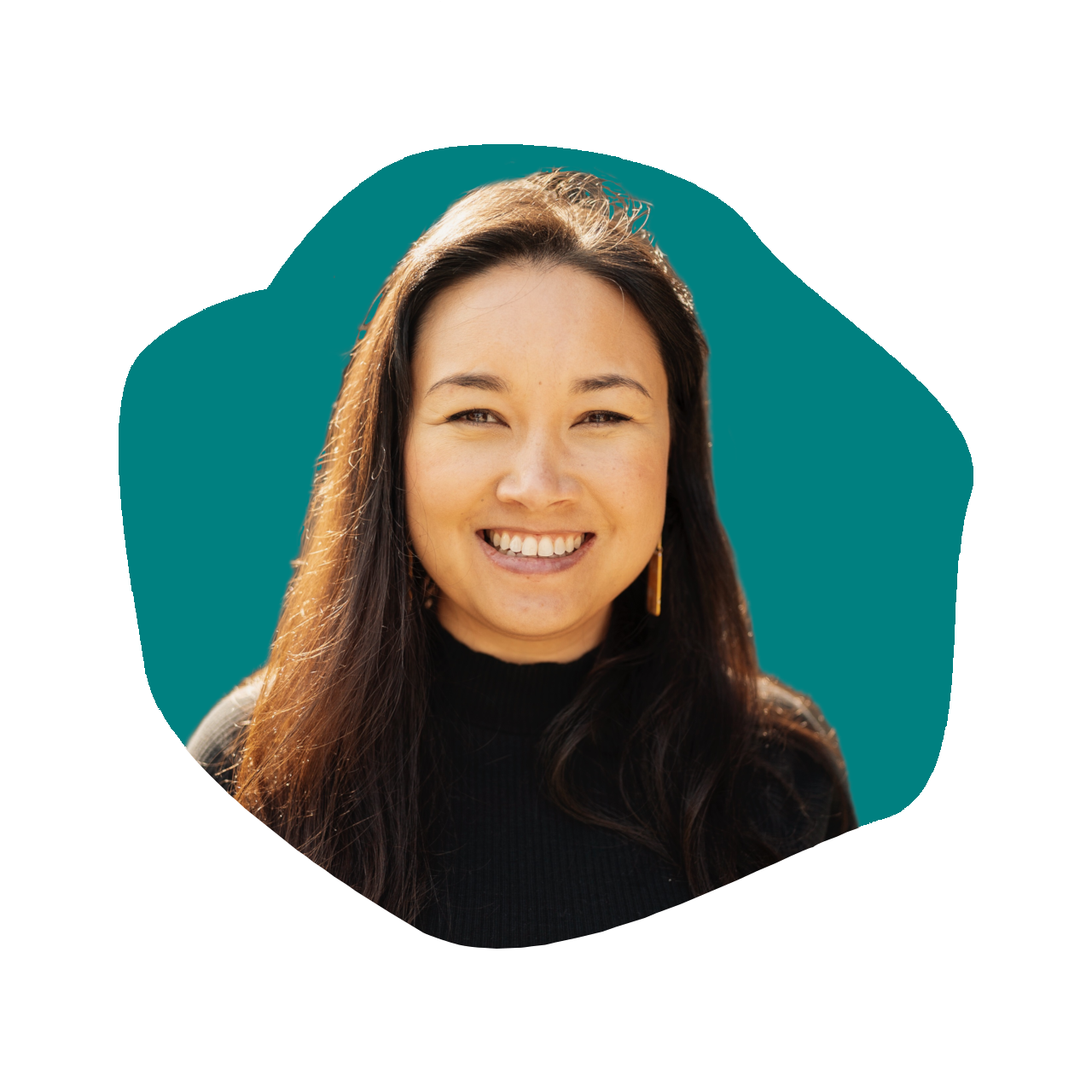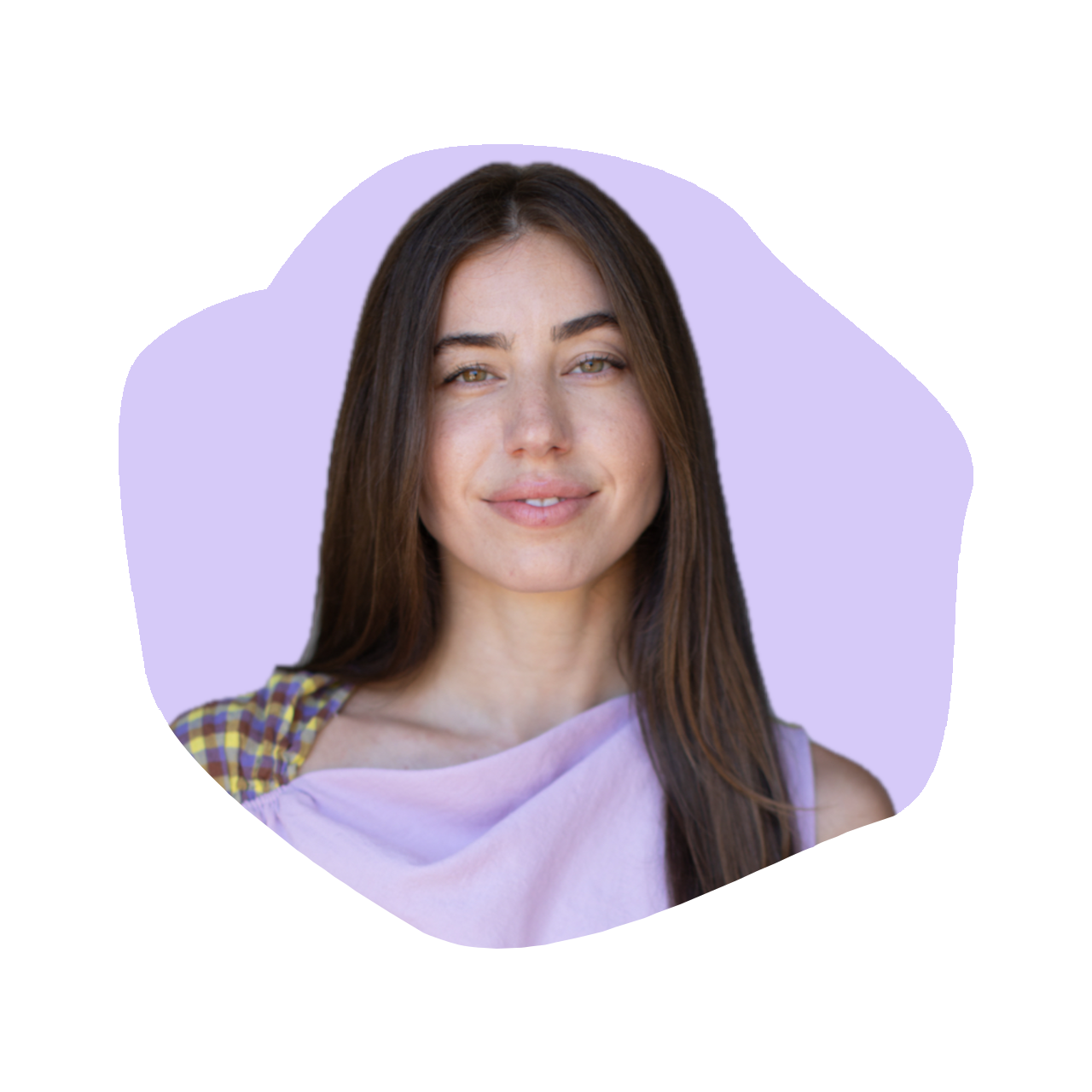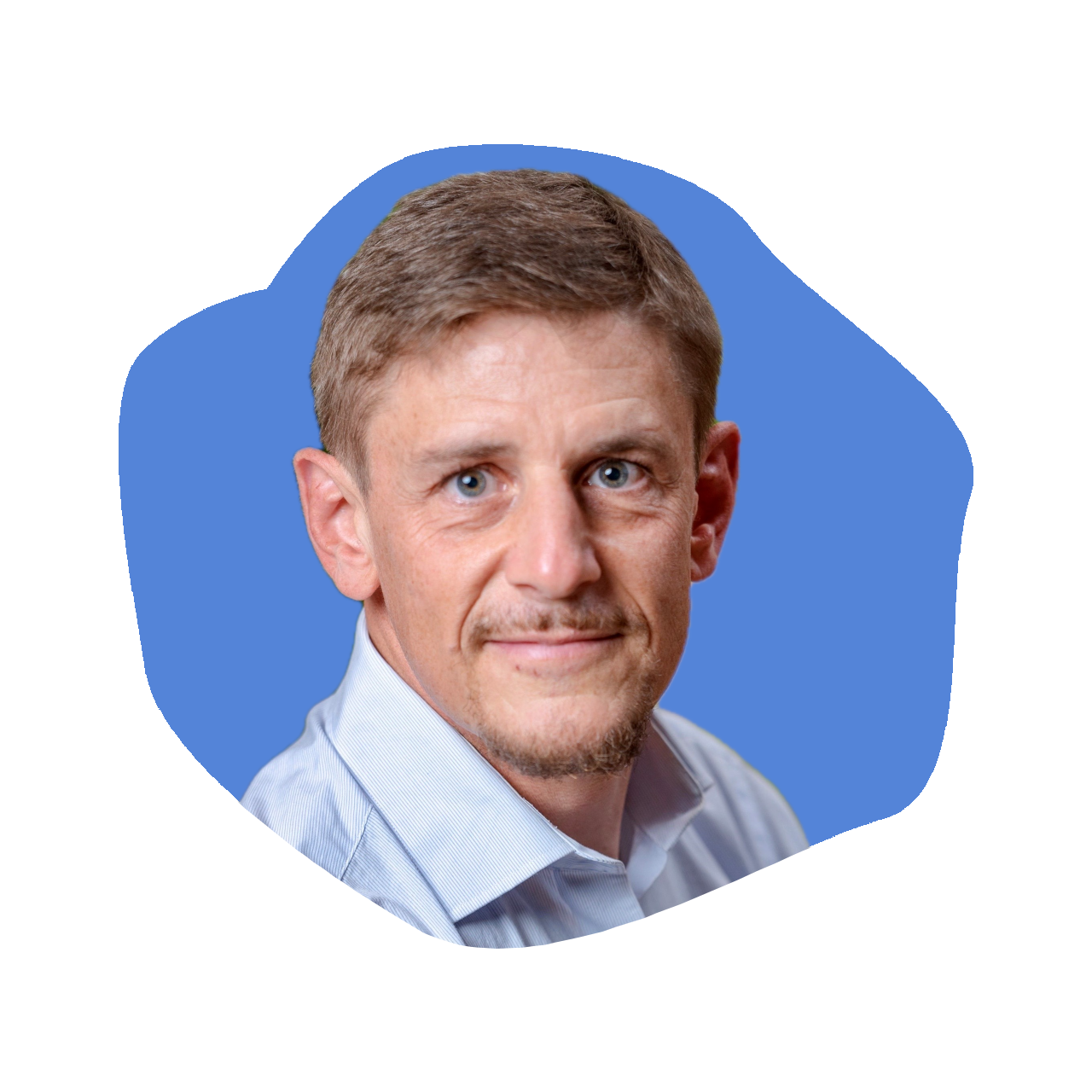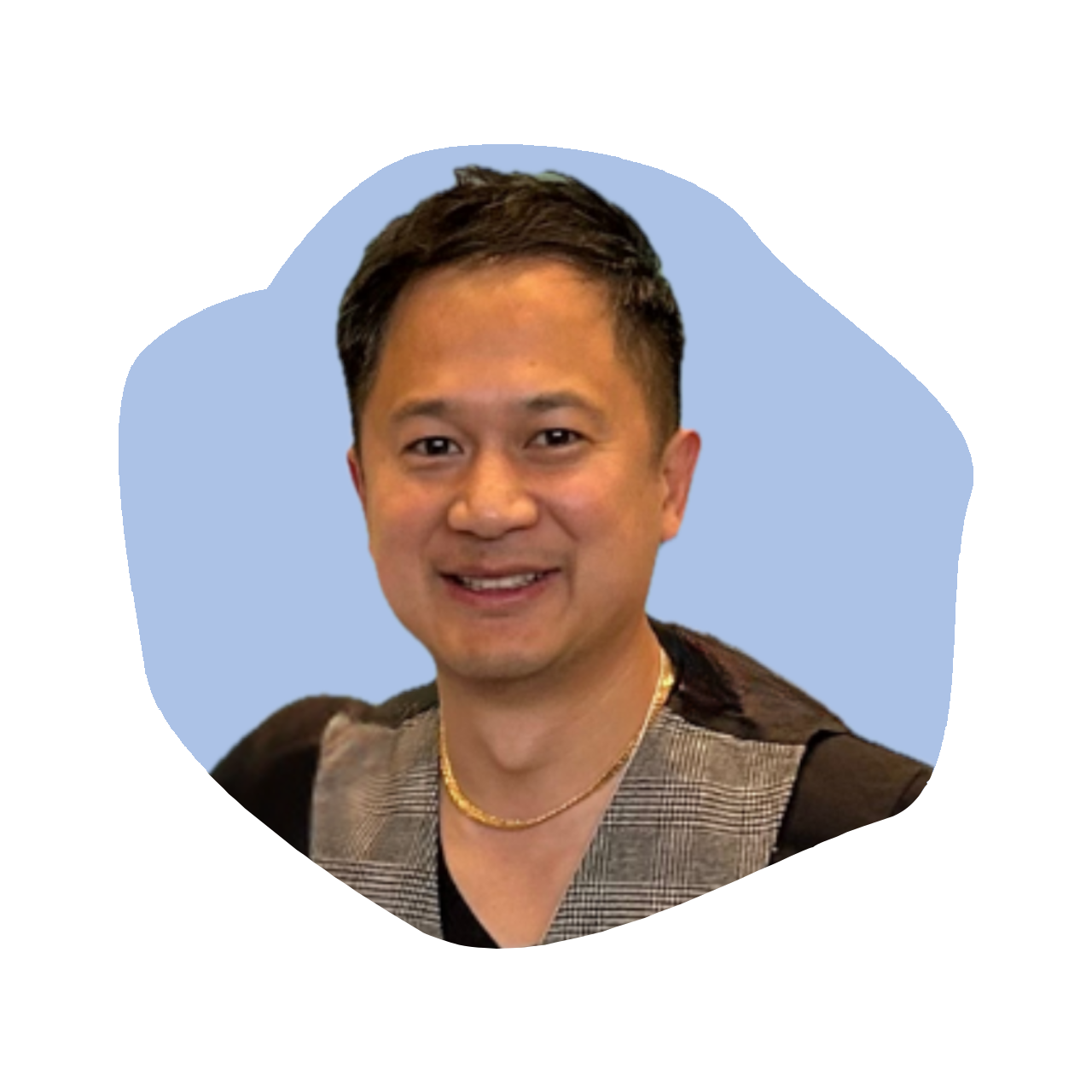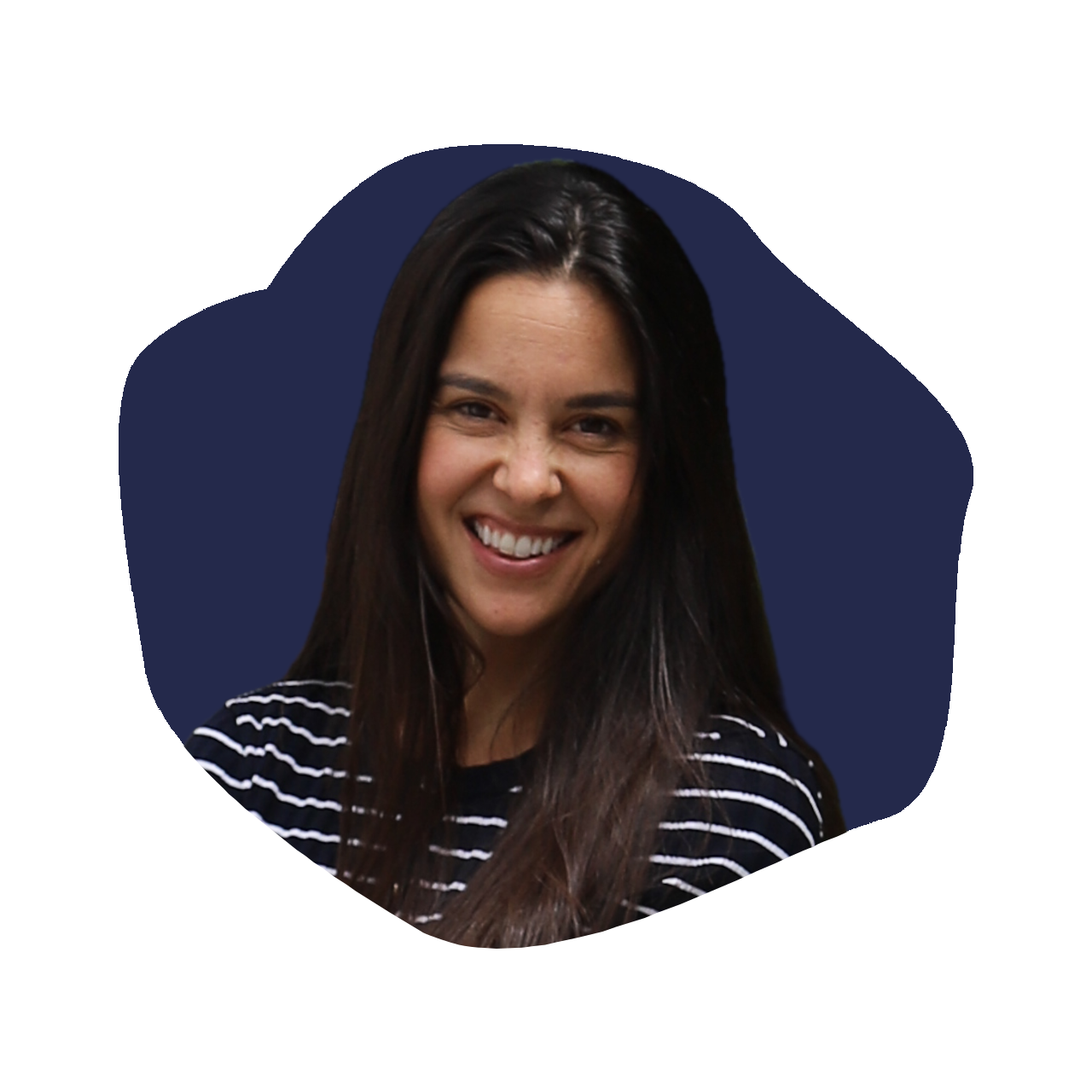Thayer Sylvester: Co-Founder & CEO of Carve Designs
Episode 611
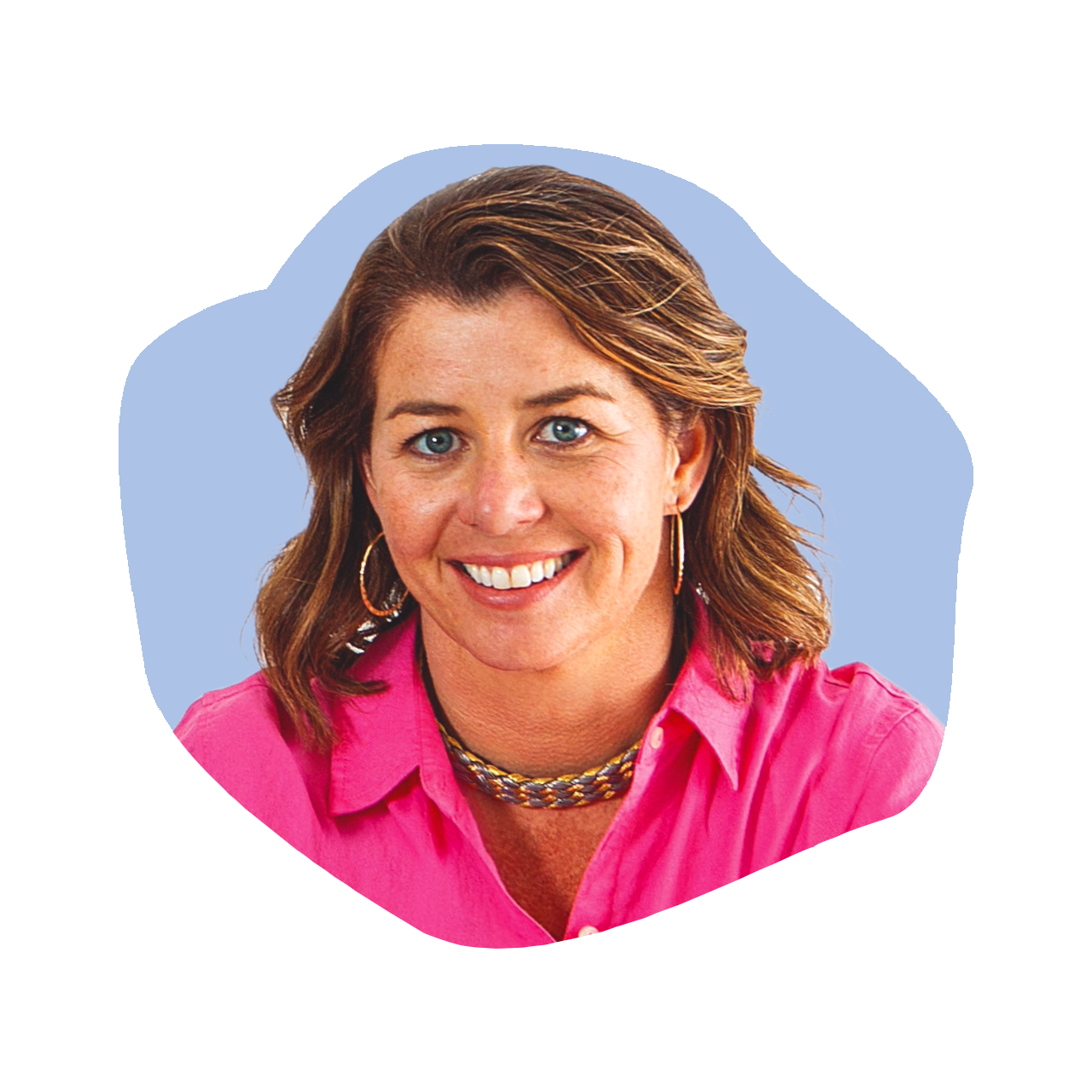
On this episode of The Kara Goldin Show, I’m joined by Thayer Sylvester, Co-Founder and CEO of Carve Designs, a pioneering outdoor apparel brand. Thayer shares the inspiring story of how Carve Designs evolved from its roots as a beach apparel company selling rash guards and board shorts to becoming a complete outdoor lifestyle brand. The brand’s mission has always been about carving a path—whether in surf or life—and Thayer’s leadership has kept that ethos at the forefront as Carve Designs continues to grow.
We dive into how Carve Designs has remained committed to sustainability, the importance of creating high-quality products that meet customer needs, and how the brand has built a loyal community. Thayer also shares insights on building a strong company culture, navigating the challenges of the outdoor fashion industry, and what it means to be a female CEO in this space. This episode is packed with valuable lessons on entrepreneurship, sustainability, and leading with purpose. Don’t miss it! Tune in now on The Kara Goldin Show!
Resources from
this episode:
Enjoying this episode of #TheKaraGoldinShow? Let Kara know by clicking on the links below and sending her a quick shout-out on social!
Follow Kara on LinkedIn – Instagram – X – Facebook – TikTok – YouTube – Threads
Have a question for Kara about one of our episodes? Reach out to Kara directly at [email protected]
To learn more about Thayer Sylvester and Carve Designs:
https://www.carvedesigns.com/
https://www.linkedin.com/in/thayer-sylvester-436296/
https://www.linkedin.com/company/carve-designs/
https://www.instagram.com/carvedesigns/
https://www.facebook.com/CarveDesignsBeach
https://x.com/carvedesigns
https://www.youtube.com/@carve.designs
https://www.carvedesigns.com/
Transcript
Kara Goldin 0:00
I am unwilling to give up that I will start over from scratch as many times as it takes to get where I want to be. I want to be you. Just want to make sure you will get knocked down. But just make sure you don’t get knocked out, knocked out. So your only choice should be go focus on what you can control. Control. Hi everyone, and welcome to the Kara Goldin show. Join me each week for inspiring conversations with some of the world’s greatest leaders. We’ll talk with founders, entrepreneurs, CEOs and really, some of the most interesting people of our time. Can’t wait to get started. Let’s go. Let’s go. Hi everyone, and welcome back to the Kara Goldin show. I’m super, super thrilled to be joined by the incredible Thayer Sylvester, who is the co founder and CEO of Carve Designs, which is a pioneering outdoor apparel brand that started from a love of surfing and evolved into a full lifestyle brand. It’s a really funny story we were talking about, I accidentally came upon the brand and was shamed by my children when I came home from a sample sale with probably, I said 50 pieces before probably 100 pieces from the sample sale. And they just thought it was ridiculous, because I’m such a brand person, and of course, I had seen the product. But they also wholesale items to different stores. They also have a direct business, but right in my own backyard in Marin and Thayer is so impressive that she’s been able to build this incredible brand out of Sausalito. So I can’t wait to talk more about how she’s done that and just all her learnings along the way. So without further ado, welcome Thayer and so nice to finally meet you.
Thayer Sylvester 1:58
Oh my gosh. Well, thank you so much for having me today. It’s really a pleasure to talk to somebody so inspiring. You trying to get the message out about what we’re all going to do to feel fulfilled in our careers? Yeah? Definitely.
Kara Goldin 2:11
So okay, so for those who aren’t familiar with carve Can you paint a picture for everybody who’s listening? What is carved designs.
Thayer Sylvester 2:21
Yeah, so carved designs is a women’s clothing brand. We make apparel, casual apparel and swimwear, and we really just try to take the effort out of feeling good every day while you’re also achieving a price point that is reasonable in your budget, and you feel good about the environmental impact that you’re having on your product.
Kara Goldin 2:43
I love it. So you were not in the apparel business before you and I were chatting a little bit about your background. Can you share a little bit more with the audience about what you were doing prior to starting carved designs?
Thayer Sylvester 2:57
I sure can. So I had nothing. I had no knowledge of the apparel business when I started the company with my co founder, Jen Hinton, we are on a surfing trip two decades ago now, and at that time, there was nothing to buy that fit athletic women. So we have this sort of classic origin story about sitting around, looking at the wave, talking about how difficult it was to shop. Of course, we couldn’t shop online then, and at the time, I had been working for a private equity firm. We’re hugely successful firm in San Francisco, Alpine investors. And what came clear to me was that that was not the work that I was cut out for, and I think that’s one of the big messages to people you know, whenever they’re first developing their careers, whether it’s early on or late on, is like, what are you good at? What do you like? And it wasn’t my cup of tea working for its private equity firm, great founder, great firm, but not for me. And so I started this company, Kara designs, and we’re 22 years in. I have a work wife, super healthy relationship, very successful business, and as far as I can tell, a bright future.
Kara Goldin 4:20
I love it. So when you were first starting out, how did you pick a co founder?
Thayer Sylvester 4:26
I mean, a lot of it is around timing and so sure there’s a skill set and an interest level, but when you’re starting your own firm, there’s so much risk associated with that commencement date, and you have to have somebody that is has the right timing and then also fits those other needs. And once you get past the timing, then you’re also kind of okay. What? What are your complimentary skill sets that you think can last you can’t be good at the same thing? Like, I mean, that’s redundant, right? You have to make sure that your partner is good at things that you are completely bad at, and you can give them control over that, and even if you’re not bad at it, you don’t want to do it, and vice versa. And then you can share the burden of the responsibility and continue to push the organization forward.
Kara Goldin 5:22
So when you look at your skills versus your co founder skills, what, how did you think about exactly, how
Thayer Sylvester 5:31
do we describe? I mean, she is the ultimate creative. Her title now is Chief Brand, chief creative officer. And you know when you think about your white space, right? So the 20% of time that you try and create in your work week to think strategically, to take a breath, think about how you might make your business more successful, or whatever, whatever problem you’re trying to solve. Her white space in my white space are very different. Her white space is what is the color and shape and vibe and feel and essence of the brand. In my white space is, what is the revenue generation plan, how are we going to finance the business? What is the process that we need, and all of these other components that then make the it tick, and so together, as a marriage, you know, we kind of make it work. So
Kara Goldin 6:36
I would imagine you had some initial designs that you wanted to have made, how like, what were those early days 22 years ago? Yeah, I
Thayer Sylvester 6:51
mean, I laughing. We knew nothing about apparel. My business partner came from interior design, and I came from private equity, and we we hit the library and we bought books on apparel design, and then we went to a factory in downtown San Francisco on Fifth and Mina, and we met with a factory owner that had been making Levi’s jeans that they Were moving the business offshores, and they helped us sketch, and then we got our first samples, and you could not put a leg in the right leg of the shorts. Oh, my God, that would generalize. Like there. There’s an A equals B calculation that needs to be done, and that needs to sometimes be translated in very a huge amount of detail. So
Kara Goldin 7:46
your first, how many SKUs did you have for your first collection?
Thayer Sylvester 7:53
You know, style, color? We probably had like 18. And now, on a seasonal basis, we’re at 280
Kara Goldin 8:01
and I would imagine you were wholesaling those items into stores initially,
Thayer Sylvester 8:07
yeah, the business strategy at that point in time was absolutely wholesale only there. Thereby you were able to reduce your inventory risk, which was hugely important for us from a capital protection perspective. And then you got to read on what people liked, and maybe you would take a little bit more risk on it and have some product available in season, but everything was pre season only to wholesale retail partners who were our partners in their retail operations. And then we would work with them. What’s working, what’s not working? What do we want to reinvest in next year?
Kara Goldin 8:43
So when you look at your business, you mentioned you’ve been alive for 22 years, and obviously, you know, growing along the way. If anybody has not seen carved designs, we’re gonna have all the info in the show notes, but it you’ll recognize it for sure. I mean, the product is so great and and definitely colorful. You end up doing the different patterns and multiple great colors that are really unique and different. How do you think about your brand as it relates to the rest of the world today. Like, how do you differentiate yourself?
Thayer Sylvester 9:27
Oh, gosh, that’s a complicated question, because in today’s world, the boundaries to entry can be a little bit low. You know, no one can kind of make something and then put an Instagram add up, but actually scaling in the sustainable way is hugely challenging, trying to think about providing your customer with novelty and newness, but then also manufacturing it in a way where we have enough product for enough customers, but. Really, we kind of break it down into, who are you and what do you? What do you? What’s your personality like? And we think about the different personalities of people that shop for us, and we break it down into, you know, very largely, there’s sort of this, you know, Mountain Lake person, there’s a bohemian surf person, there’s a classic preppy person, there’s like a lux spa person, and they all like slightly different nuances to the same product that is well priced, sustainable, of high quality, and then we have confidence that if we continue to market that over time, while also making sure that we’re conveying values associated with people that want like good vibes working for us and sustainable practices, a little bit light heartedness. I mean, we’re just enclosed, not rocket science, then we will just keep on growing the business little bit year by year.
Kara Goldin 11:13
I love it. So you talked about sustainability, and that’s been such a key pillar of carved designs. So you were early, I mean, in really talking about these issues, and kind of, you know, leading the way. I mean, today, if you don’t have a sustainability plan, particularly in apparel, then you’re not with it, for sure. So, but what were some of the early challenges in really promoting sustainability and ethical production back when you were first starting? Well,
Thayer Sylvester 11:48
so for us, when we started, you know, we talked about this a little bit. We have children that are almost fully grown. Or mean, my I have kids off at college. And when I started the business, you know, I was like figuring out what baby food to buy, and organic food became a very big part of my own person, personal ethos. And of course, then if I’m buying cotton to make into a t shirt, well, the obvious choice is that I’m going to choose an organic cotton, it had absolutely nothing to do with marketing, but just business ethos and running a business that you feel good about employing people and the suppliers and your supply chain. And so from a very early time. I mean, we the first cotton we bought was organic cotton from South Carolina, the biggest challenge was communicating to people that it costs more. And, you know, we I actually remember this diagram I had where I’m like, Okay, so here’s what you would pay for organic strawberries, and then here’s what it translates into organic t shirt. And still, at the time, it was like you were blowing people’s minds away. They’re like, well, that’s not what it costs. Like, yeah, you’re buying it from overseas. It’s irresponsibly developed. Just spend the extra 20% and let’s start, start, start this conversation. And that was the biggest challenge. And now, of course, everyone challenges us on every little decision that we make laugh because I’m like, well, we’ve been doing research for a very long time. We’ve developed fabrics over time that reduce the water usage, make sure we’re recycling materials, but it’s just been part of our ethos as responsible citizens.
Kara Goldin 13:37
I feel like you know, one aspect of every single great entrepreneur that I meet in every industry is curiosity, right? And I think that it allowed you, even talking about the sustainability aspect of your business, that you were just curious, right? And you probably asked a ton of questions you’re ready to just immerse yourself into a world that you really didn’t know much about. How important is that aspect? Would you say for your business, even today?
Thayer Sylvester 14:14
I mean, I think it’s sort of one of three things, right, curiosity, then a problem solving mindset and perseverance. And if you’re willing to let those three things continue to be in your sphere, which can be very uncomfortable, right? When you have somebody that feels like they’ve done a very good job in presenting information to you, and you say, Well, I’m curious, what do you think about this? They could consider it a threat to their work product. But what you’re doing is saying, Look, I want to push you further. I want to think about where we can go with this idea, and I’m going to help you solve that problem. And even when it gets difficult. Well, we’re going to keep on working at it, and when it gets really difficult, we’re going to face it head on and either pivot or say, okay, guys like we’re game on to solve the problem a different way. But curiosity is the absolute fundamental part of it, along with a problem solving mindset and ongoing perseverance. So
Kara Goldin 15:25
you have great offices over in Sausalito, and you can just tell from the people that I’ve met in your company, there’s there’s a culture that you’ve cultivated at Carve Designs, which is awesome, and it’s very representative of the product that you sell. So how do you maintain that culture as the company expands with
Thayer Sylvester 15:51
great difficulty and a lot of communication, you know, communication around expectations is probably one of the biggest strengths that you can give people. And also the thing that’s most easily overlooked hard, hard conversations are hard, and so people try not to have them as particularly since COVID, where there is a culture of people really wanting to continue to lean into staying at home, to preserving their flexibility around their personal lives, but also then wanting accountability and responsibility at work, we found this sort of push Pull that was new to us. Always we had been able to talk about the importance of work like life balance in raising children as a co founder and a young mom and my co founder. I mean, I cherish the days that I was able to say yes, I showed up at preschool and I read to my kid, or I was at the red and gold field day at one o’clock on a Thursday afternoon, which, you know, hidden in a professional male career, would just actually not happen 20 years ago, but in our world And in our culture, should absolutely be able to happen at the same time that you can take accountability and responsibility for your job, your department, the people that you work for, the people that work for you, and they can trust you that yeah, you’re gonna leave for two hours in the middle of the day and Go to the red and gold day, and then you’re going to come back and you’re going to keep getting your job done. So there’s this ongoing importance of communication trust that has to happen. And for us, it’s always about finding the right people. There are some people that find that structure like too difficult, and they either take advantage of it or they don’t find that it has enough structure looking at other people that completely
Kara Goldin 18:07
thrive. I think we’re going through a whole transition right now too, because, as I mentioned you, I have three in their 20s, right? And we have these discussions because I think that they look at leadership today as also trying to figure this out, and this is all new to so many incredible leaders like yourself, but when their boss isn’t coming in to the office, and they’re not, they’re having to live on a screen with their Boss all the time, it’s really hard. And so I often wonder, like, if you are managing people, is that in office, time gonna change for you versus
Thayer Sylvester 18:51
I mean, it’s a really good question. So in person, meaning is better than anything else, and there’s no substitute. And I think what you have to do as an organization is really gut check what your what your work product looks like with that in person versus, you know, allowing that flexibility, we have a new person that’s working for us. He’s worked for us for like, maybe six months. He works the commute in the morning. Can be an hour and 15 minutes. He just works over at Berkeley. And so we’re having this very open discussion, hey, like, I need you to be flexible. So, oh, we have this going on this week. Can you be here three days a week? And yeah, the commute is challenging, and then next week you cannot be here. But then let’s make sure we know what is going on about what you’re working on. So there’s that communication component. But then with young people, I also think there’s a learning component that is harder to achieve if you’re. Mode, and so it’s like there is something around just like, Oh, can you answer this quick question for me? Maybe you can get it answered in Slack, but probably there’s a little bit more back and forth than you’re willing to type out on the screen. So I really fully embrace at least hybrid. But then I have some employees that are coming once a month and some that come in every six months. It really depends on your function. Yeah,
Kara Goldin 20:30
definitely. So Carve Designs has partnered with some major retailers for their wholesale business, and that’s grown significant, grown significantly. But you also have this direct business, and you’ve taken your brand from being just a wholesaler, which is what you were doing initially, to a much bigger part of your business. How did you think about that, and what sort of was the turning point where you said, we’ve just got to do this?
Thayer Sylvester 21:01
Great question. So when we first started, the wholesale business was a proof of concept where, in the wholesale business, typically is a pre season business, where you receive orders before you have to build inventory in our world. And so that reduces your financial risk, and you can go ahead and have confidence that the inventory that you’re buying you’re going to be able to sell. The E commerce business is completely different analysis the retail business, where you’re forecasting entire and you’re taking huge risks, which is why you see a lot of promotional behavior in the last couple years. Because the risks that people take, taking are not commensurate to the consumer behavior, reaction to the what’s going on the market. So for us, when we started wholesale, it was great growth. The we always knew we had to grow the E commerce business, but it’s very expensive to grow either business in in this industry. And so we ended up raising money in 2017 from an awesome family office in New York City, and that the specific purpose of that raise was to grow the E commerce business. And that fundraising, which is the only fundraising we’ve done, funded accelerated growth in that in that channel,
Kara Goldin 22:20
when you think about your first big I can’t believe we pulled that off. Moment. I’m sure you had some for us. I went in building hint. It was when we thought we were just getting a trial in Starbucks, and then we ended up, they decided last minute. Oh, by the way, can you guys just go nationwide with us? Like, literally in weeks, we had to get it, get it all, you know, in 6000 stores. And then a year and a half later, they decided, Oh, we’re gonna put food in the case in place of you guys, even though you’re doing great, I always call it the spikes right where it’s like with the highs, there’s always going to be the lows along the way. So maybe it’s a two part question. I can’t believe we pulled this off. Is there anything that comes to mind? Oh,
Thayer Sylvester 23:13
gosh, years ago, this is when Athleta was before Athleta was part of the gap, and they bought product from brands, and we were on the cover of their catalog, several catalogs in a row, and the best selling spread that they have really what are we talking about? At that point in time, we were still running the business out of my apartment in San Francisco and fulfilling product from a warehouse in San Mateo that I had leased from the private equity from, my gosh, it was, it was pretty amazing.
Kara Goldin 23:46
That’s wild. And then has there been a point? I mean, maybe it’s not a failure, but maybe it’s a setback where you had to figure out, how do I, how do I climb out of this hole, right? How do I make this happen? Because it has to. It has to happen. Obviously it did, because you guys are thriving today. But there’s always these points along the way, I think, for for businesses in every industry where you know the unexpected shows up, you know, whether you know the entire line, hopefully this never happened, but wasn’t the right color, or didn’t fit the right way. One leg didn’t fit, or something happened and you’ve already photographed it to print, or something along the way, where you were, like,
Thayer Sylvester 24:40
we could write, we could I could write a book on the number of different things every year. We used to say it’s like, what is the unexpected this year? And so, yeah, there are always challenges. The biggest one was by far a trademark infringement challenge. That cost us an enormous amount of money we could not afford, but we were absolutely in the right, and some some people tried to take advantage of us, and we’re like in this business to give women clothing that makes them feel good, like we’re not doing this to just maximize all of our profit and all of our revenue all the time, and we just felt like, oh gosh, like, can you just like, take it down a notch? And they were not willing to. So of course, then we fought back, but it was very expensive and highly stressful, and definitely like a low point.
Kara Goldin 25:44
Yeah, and those are never fun. We had a lawsuit at hint years ago, and I remember getting a call from from the founder of kind bar, and he said, Welcome, actually, two of them, and also Hamdi at Chobani said, you know, welcome to the big leagues. Welcome to the right and, yeah, so I remember those days, and we did the same thing. We fought it, and it wasn’t fun and we won, but it was but it, you know, was expensive and not fun, and learned a lot about that process for sure. So thinking back on your your product today, or your brand today, Carve Designs is not just clothing. I mean, you guys are really creating this lifestyle. It’s very fun. It’s very it’s got soul. How do you ensure that your brand stays kind of connected to the community and reflects the values of your consumers?
Thayer Sylvester 26:48
I mean, without sounding caddy, that’s just who we are. And so my business partner, she makes sure that everyone in the organization is indoctrinated into this idea that it’s not just about what we’re selling, but it is about who we are. And we believe that like day in and day out, and we live in at work, and we live it in the product that we create. I mean, sure, are we optimizing our merchandising strategy and our marketing, marketing strategy to make sure that we’re growing and making money, absolutely but, I mean, we’ve been doing this for a long time, and we started it because we loved it, and we still love it, and so I think It really just comes from an everyday affirmation of making sure that what we’re doing aligns from a values perspective and of what resonates with our customer and feels like we can go to sleep at night,
Kara Goldin 27:55
definitely. So you’ve been in business now. Last question, for 22 years, if you were speaking to yourself, giving yourself one piece of advice 22 years ago, you and I were chatting. You were in the training program at Procter and Gamble, and then went into private equity. You’ve done different things, right? You didn’t have it all figured out when you were hopping out of college and great experience that I’m sure there’s aspects of each of these roles that you bring into your business today that you’ve learned along the way, for sure, but when you think of you know advice that you give your younger self, knowing what you know today, and not only starting, but also scaling, Carve Designs. What would you say?
Thayer Sylvester 28:49
I think really, what, fundamentally, if, if you’re this self aware when you’re young, you start, you start with the very big picture, like, what are your goals and but you have to be able to break it down right, because some people might say, I have high financial goals. My goal is fame. My goal is to lead an eight hour work week. And you kind of establish that, and you might have several different goals, but then you have to really understand, like, what are you good at? What do you like, and what do you have control over? And if you can break that down and start to formulate a plan, like, Okay, I have control over the business that I’m going to create, but I’m not good at being a salesperson. Okay, so here’s my weakness, and I’m going to fill this with somebody else and and really basically creating that matrix around what you what you have control over, what you’re good at, and what you like and and try to synthesize that towards your goal. Would be the advice I would give her. And I mean, it’s easy for me to say now, 22 years later, but if, when I sit down with young people really quickly, you can understand that they need help. Understand need help, clarifying what you have control over, what you don’t have control over, simplifying your fault. Do we want to work hard or not? There is a difference between people who want to work 80 hours a week and people who want to have job security and be able to go for a mountain bike ride five days a week, or raise their kids really knowing that about yourself and being very honest about that, it’s easy to blur. Oh, I want it all. Well, yes, that’s fine. You can have it all, as long as you know what it is you want specifically and breaking that down and then trying to execute in short term goals. Okay, what is my goal for six months, nine months a year short, to do list get it done
Kara Goldin 31:06
so Thayer Sylvester, co founder and CEO of Carve Designs. Thank you so much for coming on and sharing all about Carve Designs and your journey and your wisdom. We’ll have all the info in the show notes, but this has been really, really terrific, and I’m very, very excited that you agreed to come on.
Thayer Sylvester 31:28
Well, I’m so glad that you stumbled across our sample sale and that we’ve had she has to talk.
Kara Goldin 31:36
Yeah, absolutely. Well, thanks again.
Thayer Sylvester 31:38
Thank you.
Kara Goldin 31:39
Thanks again for listening to the Kara Goldin show. If you would please give us a review and feel free to share this podcast with others who would benefit. And of course, feel free to subscribe so you don’t miss a single episode of our podcast. Just a reminder that I can be found on all platforms at Kara Goldin, I would love to hear from you too. So feel free to DM me, and if you want to hear more about my journey, I hope you will have a listen or pick up a copy of my Wall Street Journal, best selling book, undaunted, where I share more about my journey, including founding and building. Hint, we are here every Monday, Wednesday and Friday. Thanks for listening, and goodbye for now you.





